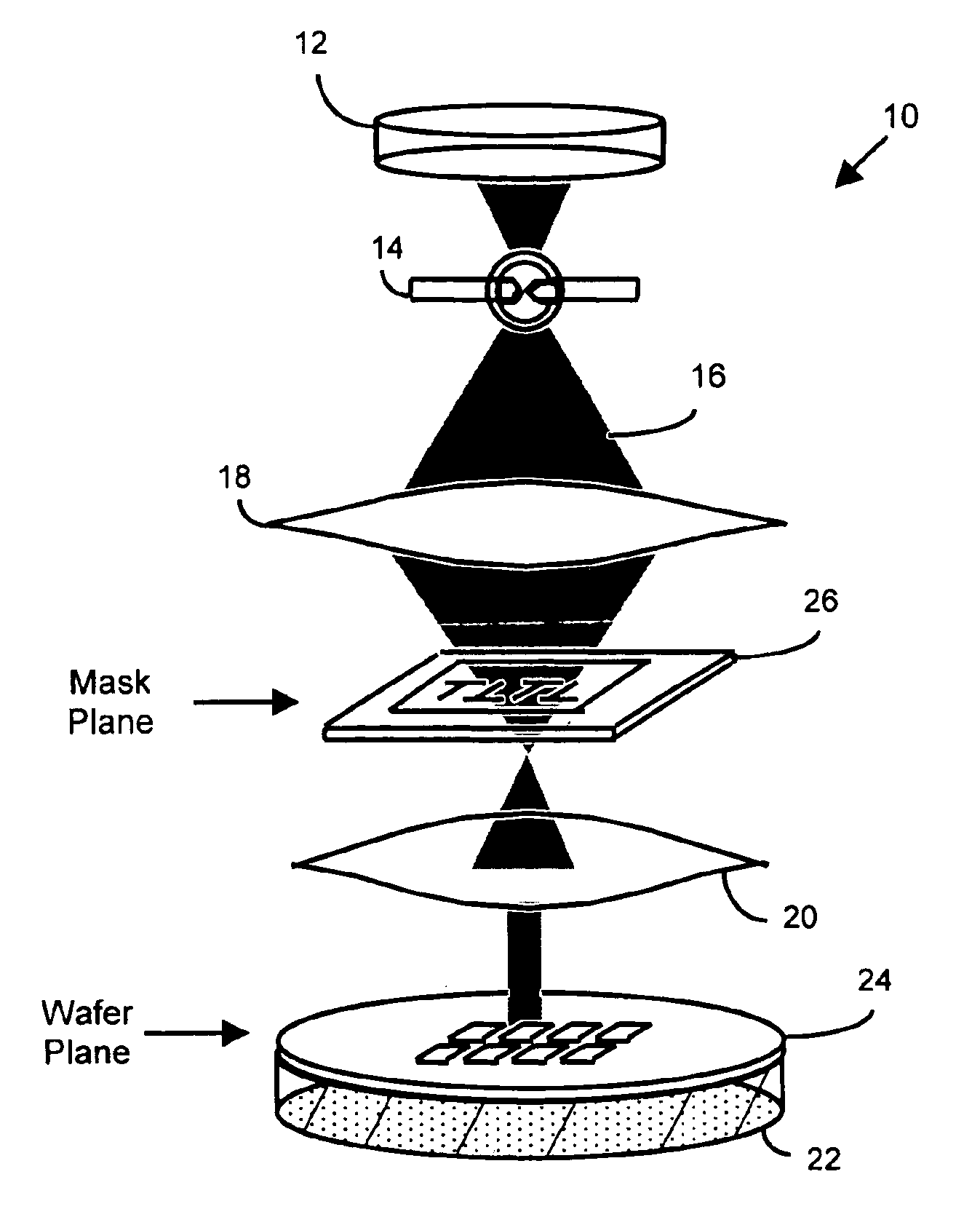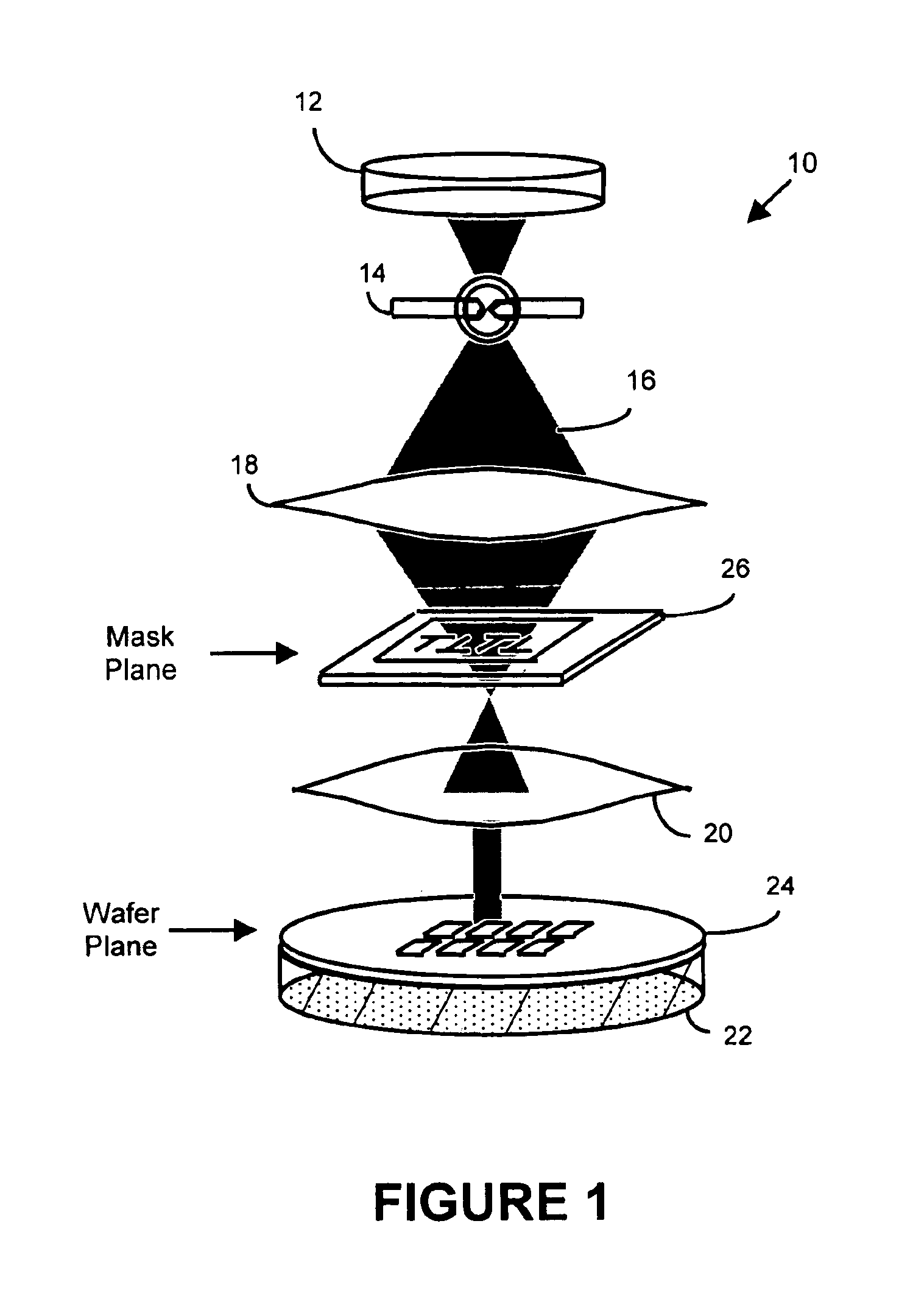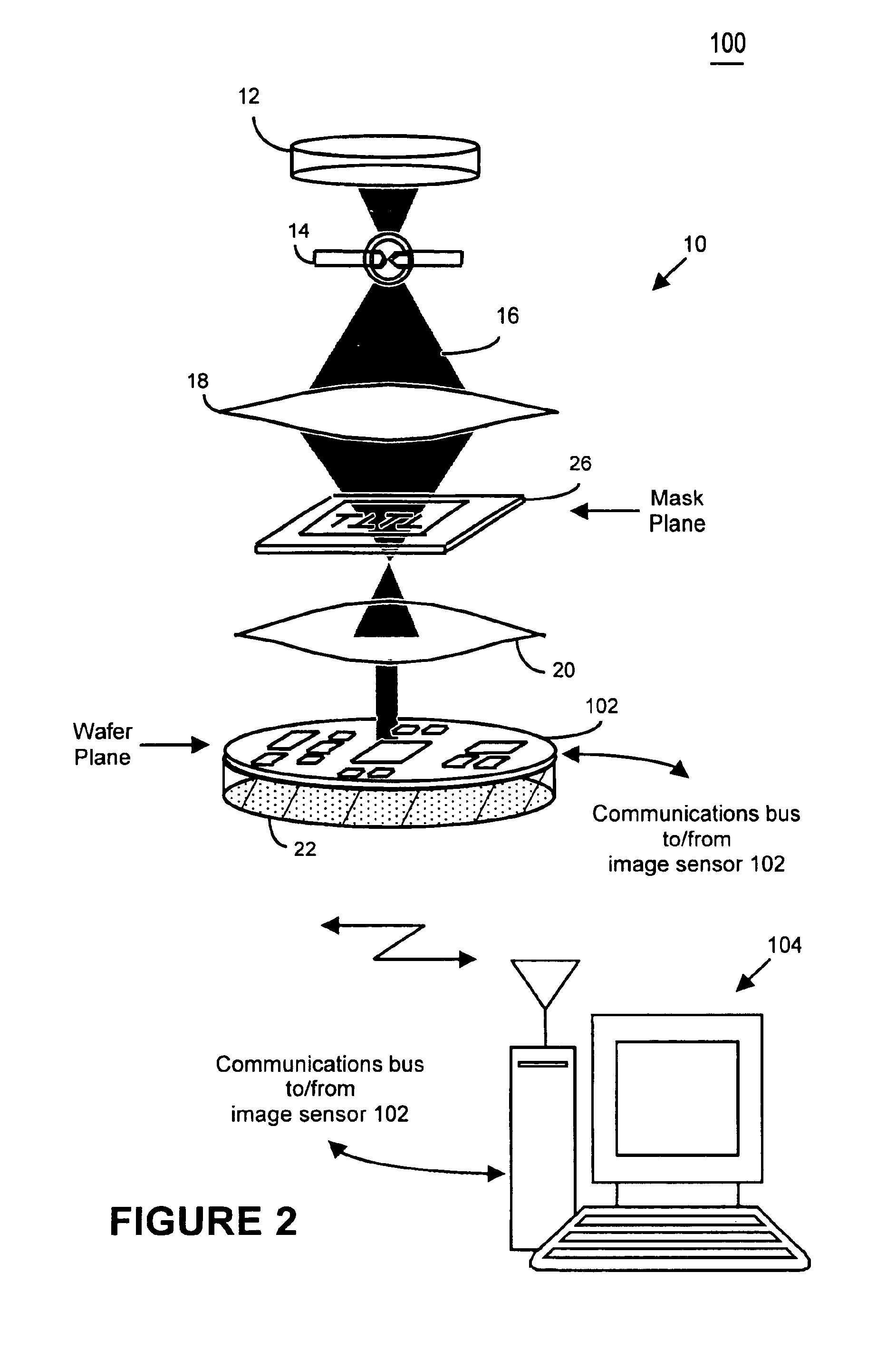System and method for lithography process monitoring and control
a technology of process monitoring and control, applied in the field of lithographic systems and techniques, can solve the problems of reducing the use of photomasks, affecting the quality of lithographic products, and prone to high cos
- Summary
- Abstract
- Description
- Claims
- Application Information
AI Technical Summary
Benefits of technology
Problems solved by technology
Method used
Image
Examples
Embodiment Construction
[0055]There are many inventions described herein. In one aspect, the present invention is directed to a technique of, and system for measuring, inspecting, characterizing and / or evaluating optical lithographic equipment, methods, and / or materials used therewith, for example, photomasks. In this regard, the present invention is a system, sensor and technique to sample, measure, collect and / or detect an aerial image produced or generated by the interaction between the photomask and lithographic equipment. An image sensor unit may be employed to sample, measure, collect and / or detect the aerial image of a product-type photomask (i.e., a photomask that is used in the production of integrated circuits on product wafers) in situ—that is, the aerial image at the wafer plane produced by the interaction between the photomask and the lithographic equipment that are used (or to be used) during manufacture of integrated circuits. In this way, the aerial image used, generated or produced to meas...
PUM
 Login to View More
Login to View More Abstract
Description
Claims
Application Information
 Login to View More
Login to View More - R&D
- Intellectual Property
- Life Sciences
- Materials
- Tech Scout
- Unparalleled Data Quality
- Higher Quality Content
- 60% Fewer Hallucinations
Browse by: Latest US Patents, China's latest patents, Technical Efficacy Thesaurus, Application Domain, Technology Topic, Popular Technical Reports.
© 2025 PatSnap. All rights reserved.Legal|Privacy policy|Modern Slavery Act Transparency Statement|Sitemap|About US| Contact US: help@patsnap.com



